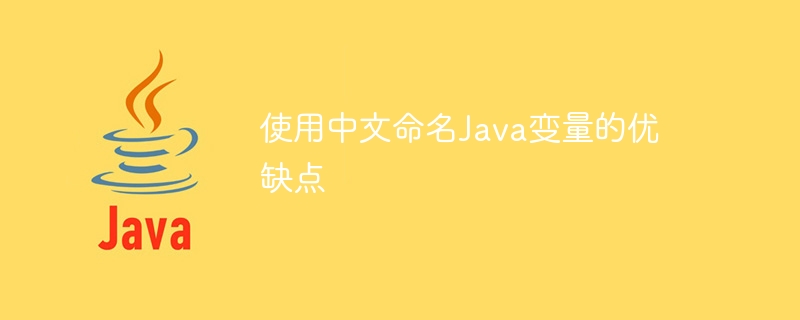

The advantages and disadvantages of using Chinese to name Java variables
In Java programming, we usually use English to name identifiers such as variables, methods, and classes. However, sometimes we can also consider using Chinese as part of the identifier. This article will explore the advantages and disadvantages of using Chinese named Java variables and give some specific code examples.
Advantage 1: Improve code readability
Using Chinese named Java variables can make the code easier to understand and read. After all, our brains understand and recognize Chinese more naturally and fluently than English. For non-native English programmers, using Chinese named variables can reduce barriers to understanding and improve the efficiency of writing code. For example:
int 年龄; String 姓名; boolean 已婚;
These variable names do not use English words, but we can still easily understand what they represent.
Advantage 2: Increase the maintainability of the code
Using Chinese named variables can increase the maintainability of the code. By using meaningful Chinese vocabulary, we can more easily understand the function and intent of the code, making it easier to maintain and modify the code. For example:
int 商品数量; String 订单地址; boolean 客户已付款;
Through these variable names, we can immediately understand and identify the information represented by the variables without spending additional cognitive ability.
Disadvantage 1: Poor portability
Although using Chinese named variables can improve the readability and maintainability of the code, it also brings about a problem, that is, the portability of the code sex. Java is a cross-platform programming language that can run on a variety of operating systems and hardware. However, different platforms may encode Chinese differently, which may cause problems when migrating code. Therefore, when developing cross-platform applications, try to avoid using Chinese named variables.
Disadvantage 2: Inconsistency with standard conventions
The Java programming community has a set of standard naming conventions, namely camel case. Following this convention, variable names should begin with a lowercase letter, and capitalize the first letter to separate words. For example:
int productCount; String orderAddress; boolean hasPaid;
Using Chinese named variables violates this convention and may cause confusion to other programmers, especially those who are not familiar with Chinese. Such naming may make the code less readable, making it more difficult to maintain and modify the code.
To sum up, using Chinese to name Java variables has its advantages and disadvantages. It can improve code readability and maintainability, but may make code less portable and inconsistent with standard naming conventions. Therefore, in actual projects, we should weigh the pros and cons according to the specific situation and choose a suitable naming method.
The above is the detailed content of Advantages and disadvantages of using Chinese when naming Java variables. For more information, please follow other related articles on the PHP Chinese website!




